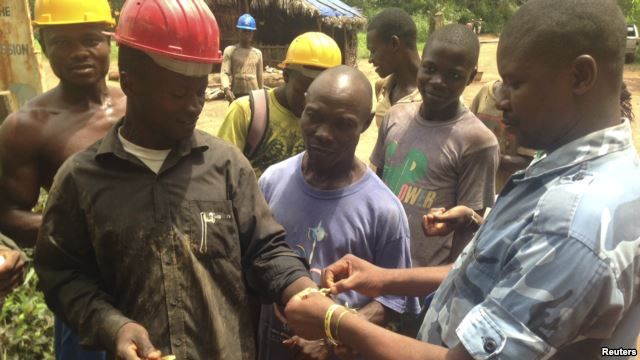In the race to find a treatment for Ebola even the most promising drugs and vaccines are months away from widespread use for patients. Yet one potential cure is available in great quantities—the blood of survivors. On December 8th the first clinical trials of blood transfusions started in Sierra Leone.
The experiment is led by local doctors, who say they can no longer bear to sit by as countrymen succumb to the disease. They are motivated by evidence from a 1995 outbreak in the Democratic Republic of Congo, in which seven of eight Ebola patients lived after transfusions of blood from survivors.
The key components of convalescent blood are antibodies against the Ebola virus. These proteins stick to the virus to block it from causing more harm. Normally it may take weeks for a patient’s immune system to recognise invading viruses and generate antibodies against them; many people succumb to Ebola before this defence kicks in.
Several modes of antibody treatments (among others) are being developed, including ones that contain antibodies that have been isolated and concentrated from blood (or cloned or synthesised). These have the advantage of purity, but require advanced technology. Whole blood might, however, offer other benefits such as interferons (proteins that also help fight viruses) and may have contributed to patients’ survival in the past.
Foday Sahr, one of the clinicians leading the trial in the capital, Freetown, expects to have results from 100 patients by early January. With an average of 59 cases per day in Sierra Leone, and odds worse than 50% for survival, Dr Sahr expects no shortage of participants for the tests. Tapping survivors for blood may be harder, but the team has been working closely with local survivor support groups, presenting blood donations as an act of heroism. They will offer honorariums of $69 (half the population earns less than $1.25 a day) to survivors who qualify as donors, eg, they must be free of HIV, hepatitis and syphilis.
Meanwhile, in Guinea and Liberia, a 100-participant study of blood treatments and also tests of antiviral medications should begin trials later this month. If the blood trials show a benefit, the therapy could be scaled up fairly fast—without having to pass through the regulatory process and price negotiations involved with pharmaceuticals.
As important, the mere existence of an intervention for the sick may convince people to send their ailing loved ones to the clinic, rather than care for them at home, which is dangerous. “If people believe that there is a treatment, they will come to the hospital more often and earlier,” says Simona Zipursky, with the WHO in Sierra Leone.
